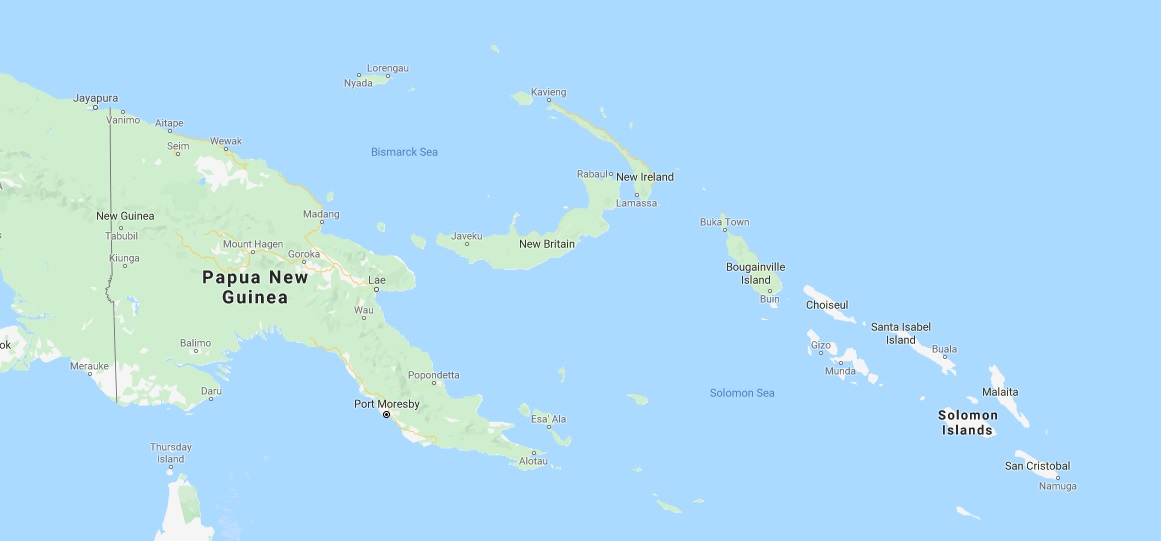 Image: Google Maps
Image: Google Maps
Over 200,000 registered Bougainvilleans began casting their vote in a long-awaited independence from Papua New Guinea, as they gear up in hope of creating the world’s newest country.
The people of the island of Bougainville, situated 1,000 miles northeast of Australia are now voting for a separate nation, breaking away from economically strained Papua New Guinea (PNG).
On Saturday morning, over a 1,000 people waited to cast their votes while others walked through the streets chanting in a chorus, waving their flags and playing liberation songs with freedom with bamboo pipes.
The islanders are given two options to choose from, either a separate nation or greater autonomy remaining with PNG. The results are expected in December as the polls will be open for over two weeks to allow even those from remote villages an opportunity to vote.
More than 20,000 people were killed as a result of the civil war between the two nations, which will likely shape many votes in the referendum. In 2001, New Zealand negotiated a peace deal to bring the civil war to an end, whereby the Islanders were granted greater autonomy. The agreement however required an independence referendum to be held by 2020. However, the results of this vote are not binding and PNG’s parliament will have to agree for Bougainville to successfully break away.
Key to the grievances was a lucrative gold and copper mine in Panguna, which provided as much as 45% of Papua New Guinea’s export income. As conflict escalated, armed indigenous landowners forced authorities to shut down the Panguna mine, amidst concerns of environmental damage.
The islanders' reported that alongside the unequal share of revenue from the mine, there was vast environmental damage caused to land and rivers.
John Momis, president of Bougainville told the PNG parliament,
“The essence of what our people want is still empowerment of a Bougainville Government that can truly manage its own affairs.”
According to Gianluca Rampolla, UN resident coordinator in Papua New Guinea, measures are being taken to assure a ‘peaceful, transparent, inclusive and credible’ voting process. “They've been waiting 19 years for this historic moment,” he said. “I think they will be left with joy.”
See more from The Independent here, The Guardian here, and The Times here.
